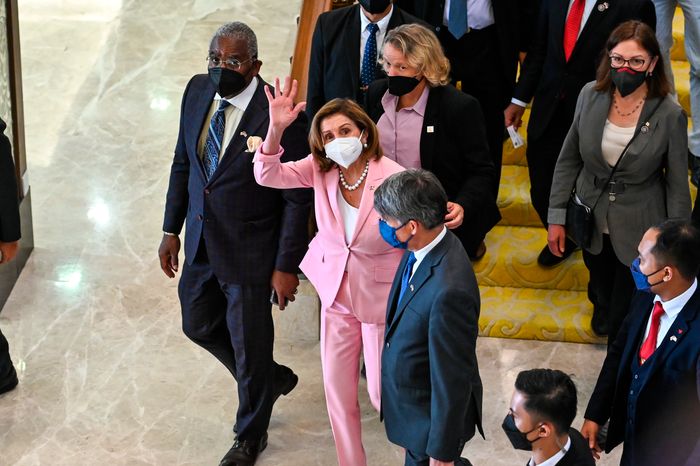Local media in Taiwan reported Pelosi would arrive on Tuesday night, becoming the highest-ranking elected U.S. official to visit in more than 25 years
U.S. House Speaker Nancy Pelosi left Malaysia on Tuesday and was expected to visit Taiwan, escalating tensions with Beijing, which claims the self-ruled island as its own territory.
The plane carrying Pelosi and her delegation left from a Malaysian air force base after a brief stopover that included a lunch meeting with Prime Minister Ismail Sabri Yaakob, an official said on condition of anonymity because he wasn’t authorized to release details to the media.
Pelosi is on an Asian tour this week that is being closely watched to see if she will defy China’s warnings against visiting Taiwan.

It was unclear where she was headed from Malaysia, but local media in Taiwan reported that she would arrive on Tuesday night, becoming the highest-ranking elected U.S. official to visit in more than 25 years.
The United Daily News, Liberty Times and China Times — Taiwan’s three largest national newspapers — cited unidentified sources as saying she would spend the night in Taiwan.
Taiwan’s Foreign Ministry declined to comment. Premier Su Tseng-chang didn’t explicitly confirm Pelosi’s visit, but said Tuesday that “any foreign guests and friendly lawmakers” are “very much welcome.”
China, which regards Taiwan as a renegade province to be annexed by force if necessary, has repeatedly warned of retaliation if Pelosi visits, saying its military will “never sit idly by.”
“The U.S. and Taiwan have colluded to make provocations first, and China has only been compelled to act out of self-defense,” Chinese Foreign Ministry spokesperson Hua Chunying told reporters Tuesday in Beijing.
Hua said China has been in constant communication with the U.S. and made clear “how dangerous it would be if the visit actually happens.” Any countermeasures China take will be “justified and necessary” in the face of Washington’s “unscrupulous behavior,” she said.
China’s military threats have driven concerns of a new crisis in the Taiwan Strait, which separates the two sides, that could roil global markets and supply chains.
The White House on Monday decried Beijing’s rhetoric, saying the U.S. has no interest in deepening tensions with China and “will not take the bait or engage in saber rattling.”
White House National Security Council spokesperson John Kirby underscored that the decision on whether to visit Taiwan was ultimately Pelosi’s. He noted that members of Congress have routinely visited the island over the years.
Kirby said administration officials are concerned that Beijing could use the visit as an excuse to take provocative retaliatory steps, including military action such as firing missiles in the Taiwan Strait or around Taiwan, or flying sorties into the island’s airspace and carrying out large-scale naval exercises in the strait.